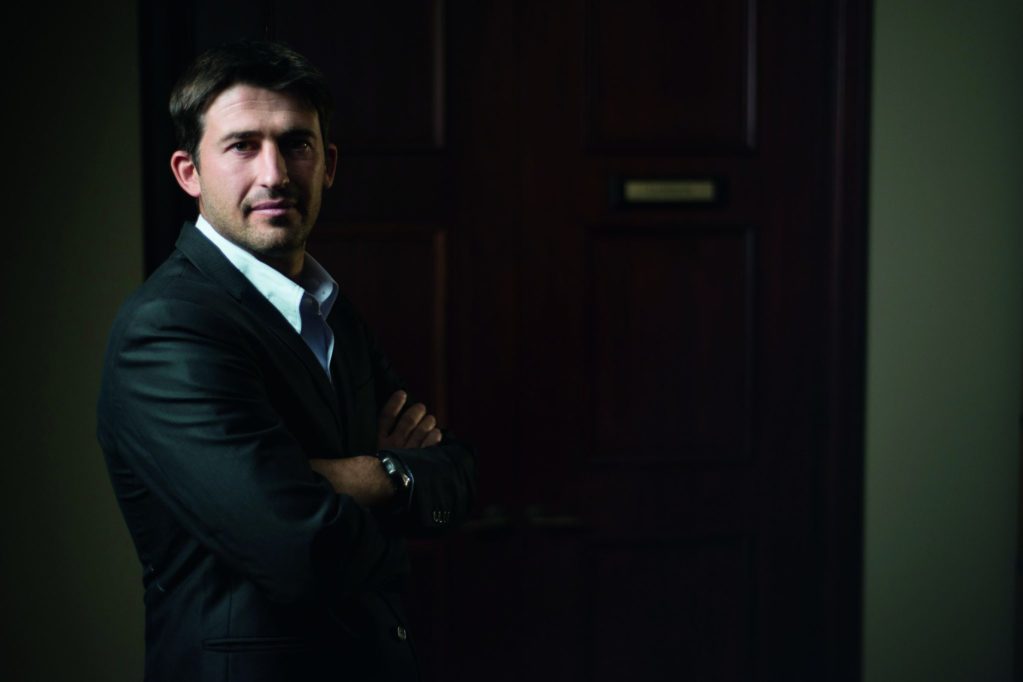Most children start their first business ventures in their back garden. Their bright minds look for ways to make money by any means, whether it’s washing cars, baking muffins, making lemonade or charging their parents to eat plastic food.
At the age of six, Ettiene Pretorius made his first buck by selling beer on his parents’ farm in White River, in the Mpumalanga province of South Africa.
“The people who worked on the farm had to walk to town, 15 kilometers there and 15 kilometers back, to buy two or three Black Label quarts… I felt sorry for them. I said, ‘Mom can I borrow R2,000? I need to go buy some alcohol so I can sell it on the farm.’”
This was Pretorius’ first taste of success. Years later, while studying risk management at the University of Potchefstroom, he noticed that students were paying far too much money for clothing. He found cheap suppliers and started a business that supplied athletic and business wear to students, undercutting everyone else because he sold the stock from
his room.
Loading...
In his third year, he saw the great demand for student housing and ventured into the real estate industry. He got his first sectional title scheme that consisted of seven units. By the age of 27, Pretorius had completed many more sectional title schemes, collectively worth more than R35 million ($3.3 million).
Now, at 31, Pretorius hopes his latest project will revolutionize the real estate industry. He is creating an app that will make it easier for people to sell property. The app does away with the broker-rich firms so the individual can start their own business and do sales without splitting their commission with the agencies.
“We’re cutting out the middle man,” he says.
Pretorius’ job ventures have seen him rub shoulders with the rich and famous. In March, he took a trip to the Richard Branson-owned Necker Island, part of the British Virgin Islands, where he spent a few days with people from around the world discussing ideas on how to save the world, the eco-friendly way.
Pretorius describes the 74-acre island that comes with phenomenal service, zipliners, tennis courts, helipads, walk paths, skiing and magnificent views of the clear-blue ocean, as paradise.
“You know that Peter Pan movie with Robin Williams? It almost looks something like that,” he says.
Pretorius speaks of Branson with high regard. He describes him as a laid back intellectual who never says no.
“You see them as these celebrities on TV or in magazines but, you know, they portray them as these action figures in life. But, once you get to know them, they are just human.”
During the five-day stay on the island, the group took a trip to Mosquito Island, Branson’s other island in the Caribbean. They were set to travel by boat or canoe but as a joke someone suggested that Pretorius swim. And so he did.
“I had been swimming and swimming for what felt like hours. I asked some how far I was and they said I was only half way… By the time I reached the island, everyone had had lunch and they had completed the first session of the day.”
Pretorius, who at the time was training for Ironman, a long-distance triathlon, says that there is a connection between great businessmen and sport.
“Most of the people I’ve met, who are at a very high level of business, are all very fit. They push their mental strength… there is always a challenge that they are setting up for themselves.”
When it comes to success, Pretorius says it’s all about how you move from one step to the next.
“Picture 10 circles in your mind. The objective is to get into every circle but you can’t get into the next circle unless you have certain expertise, values, a product, a service, a skill or a connection that you can add… You can never go to the next circle if you want to take something, you can only get to the next circle if you give something.”
As Pretorius speaks of his success, the lessons learnt and the kind of person he wants to be, he recalls a conversation he had with George Ross, Donald Trump’s lawyer. Ross mentioned that someone had paid $18,000 for a one-hour lunch with him just to gain some of his knowledge. Ross donated the money to charity.
“I want to be at that level where people want to speak to me and pay $18,000 for lunch. It’s not about the money but about the value of the message that people have,” says Pretorius.
Pretorius looks back on all his ventures and says that he was never driven by money. His motivation was to make things easier and affordable for other people.
“Business is a game I play, people are my passion and money is just a tool that I use to get from point A to point B,” he says.
So far, Pretorius seems to be playing the game very well.
Loading...
